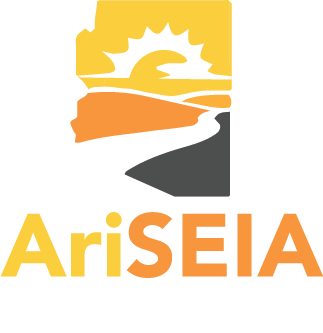|
This week, the Arizona Corporation Commission heard UNS, TEP and APS’s application for a revised Rate Rider Resource Comparison Proxy (RCP). The RCP is a proxy for the avoided cost of providing electrical service that results when a distributed generator exports power to the grid. An RCP rate is determined for each tranche of new Distributed Generation customer effective October 1 of each year without prorations. Additionally, as established in the Value and Cost of Distributed Generation, the RCP rate may not be reduced by more than 10 percent each year. In June of this year, AriSEIA requested the Commission to reject a bid to lower the export rate (RCP) for new rooftop solar customers in UNS. In the midst of a global pandemic, we made this request on behalf of homeowners hoping to adopt rooftop solar as a way to control their electric bills, as well as on behalf of the thousands of families and workers who rely on Arizona’s rooftop solar industry to provide stable jobs. AriSEIA was successful in obtaining a delay in the UNS application. Though AriSEIA was thankful to the Commission for the decision rendered in June, Arizona is still reeling from the uncertainty caused by the COVID-19 pandemic, and unfortunately, the RCP reduction applications for APS, TEP and UNS all appeared on the Commissions Open Meeting agenda this week. Recognizing the fallout from the pandemic and the continued impacts that COVID-19 is having on our state, homeowners and the solar energy industry, AriSEIA once again filed a letter to the docket in staunch opposition to a rate reduction. Simply put, right now is not the time to risk more jobs and to make it more expensive for people to place rooftop solar on their homes. By lowering the export rate, it makes it harder to save money with solar and risks many jobs to the industry. After hearing AriSEIA’s concerns on the far-reaching impact a reduction to the export rate would cause, Commissioner Lea Marquez-Petersen offered an amendment to each application. Her amendment recognized the ongoing hardships that COVID-19 has caused, and while it approves the step-down, it concurrently sets the effective date to 2021 in order to give property owners an additional year to install rooftop solar. We'd also like to recognize Commissioner Kennedy for her friendly amendment that would also have delayed the RCP step-down. In addition to the letter to the docket, members of AriSEIA, the Board of Directors and myself testified in opposition to the UNS, TEP and APS applications. Further, AriSEIA came out in full support of the Commissioner Lea Marquez-Petersen amendment. After all testimony and discussion was heard, the Commission voted 3-2 in support of Commissioner Marquez-Petersen’s amendment, and ultimately all three applications were approved as amendment in a 4-1 vote. AriSEIA’s efforts signify a big win for Arizona homeowners, families and workers who rely on Arizona’s rooftop solar industry to provide cost stability in their electric bills and stable jobs throughout the state. This victory will ensure that new customers will continue to get the current RCP rate in UNS, TEP, and APS service territories until next fall at the earliest.
0 Comments
Leave a Reply. |
AriSEIA NewsKeep up with the latest solar energy news! Archives
July 2024
Categories
All
|
NEWS
See what AriSEIA is up to on the policy front.
The Arizona Solar Energy Industries Association (AriSEIA) is a 501(c)(6) non-profit trade association representing the solar, storage, and electrification industry, solar-friendly businesses, and others interested in advancing complementary technologies in Arizona. The group's focus is on education, professionalism and promotion of public policies that support deployment of solar, storage, and electrification technologies and renewable energy job growth and creation. |
FOLLOW Us |
Copyright © 2019 AriSEIA - All Rights Reserved

 RSS Feed
RSS Feed
